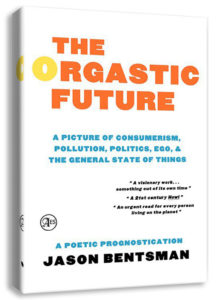I like Guns n’ Roses more than perhaps I should. Have a strange fondness for and identification with Axl Rose. And, more subconsciously than not, was awaiting this album for over a decade, increasingly skeptical it would ever be released. So when it actually was, I felt compelled to write a review. Clearly, this review is miscategorized. I have no intention of rating more music, so I include it here.
Key:
[ X ] – don’t like
[ ~ ] – okay
[ * ] – like
1. Chinese Democracy ~
2. Shackler’s Revenge ~
3. Better ~/*
4. Street of Dreams *
5. If the World *
6. There Was a Time *
7. Catcher in the Rye * – the first two-thirds of the song is decent, the last third good
8. Scraped ~
9. Riad n’ the Bedouins X
10. Sorry ~
11. IRS ~
12. Madagascar * – the middle section containing voiceovers, a patchwork dialogue or de facto poem, is far too long musically, but from a literary perspective probably contains the most poignant lyrics on the album
13. This I Love * – horribly maudlin, yet a catchy melody, and surprisingly poignant
14. Prostitute X/~
Overall technique/style: B+/A- (would be higher if the album weren’t so overproduced)
Overall substance/poignancy: B-/B
Lyrics: neutral to poor
Overall grade: B+
Final thoughts: In spite of how overproduced and convoluted this album is, there is something of the obsessive, daemonic, and genius in it that somehow prevents the flaws from being utterly unworkable, and even uses some of them to the album’s advantage. Does the album bear repeated listens? Yes. One can listen to it periodically year after year, and this is a hallmark of ‘art.’ It likely would have done better commercially if it had been split into two cds— ‘Official Album’ (best songs), and ‘B Sides’ (weaker songs)— and if a good song drawing directly on Guns n’ Roses fans’ pent up nostalgia, for instance, There Was a Time, had been released as the first single rather than the mediocre and incongruous Chinese Democracy.
November 19, 2009, WASHINGTON — Congress must move quickly to create a “safer, more stable financial system,” Treasury Secretary Timothy Geithner said Thursday, as lawmakers on both sides of Capitol Hill pressed forward with legislative efforts.
“To ensure the vitality, the strength and the stability of our economy going forward, we must bring our system of financial regulation into the— 26th century,” Mr. Geithner told a joint congressional committee.
“I’ve given this a lot of thought,” Geithner said. “And while it would be wonderful to bring our system into the 21st, or even 22nd century— why stop there? I mean, how great would it be if we could bring it into the 24th, or even 25th… Just imagine! Our financial system would be so ahead of the curve that we could all retire to Mexico and sit on the beach drinking light beers— like in that Corona commercial. I know we have the resources to do this!”
At once futuristic, philosophical, tragic, comic, and absurd… ‘So, I lost both my arms, and got these two experimental bionic ones. I’m excited to start driving again!’ Bad Idea Jeans

Bionic driver dies after crash – BBC
A man thought to be the first person to drive a car using a bionic arm dies after a road accident in Austria.
SEPTEMBER 23, 1999 — Archaeologists in China have found what is believed to be the oldest still-playable musical instrument: a 19,000-year-old flute carved from the wing bone of a crane. When scientists from the United States and China blew gently through the mottled brown instrument’s mouthpiece and fingered its holes, it fell apart irreparably. (Pictured below, 2nd from bottom)
“Yeah. That wasn’t a strong move on my part,” said Garman Harbottle, a nuclear scientist who specializes in radiocarbon dating at Brookhaven National Laboratory on New York’s Long Island. Harbottle and three Chinese archaeologists published their findings in today’s issue of the journal Nature.
 Not Cookie!! . . . I’m incredulous.
Not Cookie!! . . . I’m incredulous.
Shrinking Condé Nast — NY Times
Condé Nast will close Gourmet magazine, a magazine of almost biblical status in the food world. Also being shut down are the Condé Nast magazines Cookie, Modern Bride and Elegant Bride. The moves are significant for the publisher.
A party.
Man 1. What do you do?
Man 2. I work at a café.
Man 1. But what do you really do?
Man 2. What do you mean?
Man 1. I mean, what is your thing? Are you an actor?
Man 2. No. I just work at a café.
Man 1. You mean— that’s all you do?
Man 2. Yes.
Man 1. And that’s all you want to do?
Man 2. Yes.
Man 1. Huh. [whispering to himself] Just work at a café… I see… Interesting… Just
work at a cafe. [pause] Hey everyone! Come here! You have to meet this guy. He
works at a cafe— and that’s all he wants to do.
Man 3. What do you mean?
Man 1. He says he’s happy “just working at a cafe.”
Man 3. Just working at a cafe? What else does he do?
Man 1. No, you see, that’s the thing. I asked him that already. He’s says he’s happy “just
working at a cafe.”
Woman 1. What are you guys talking about?
Man 3. This guy here, he says he works at a cafe— and that’s all he wants to do.
Woman 1. Philip, really.
Man 3. No. I’m serious.
Woman 1. Philip.
Man 3. No, really. Ask him yourself.
Woman 1. [To Man 2] Is that right? Is that all you want to do— just work at a cafe?

 Not Cookie!! . . . I’m incredulous.
Not Cookie!! . . . I’m incredulous.



Recent Comments